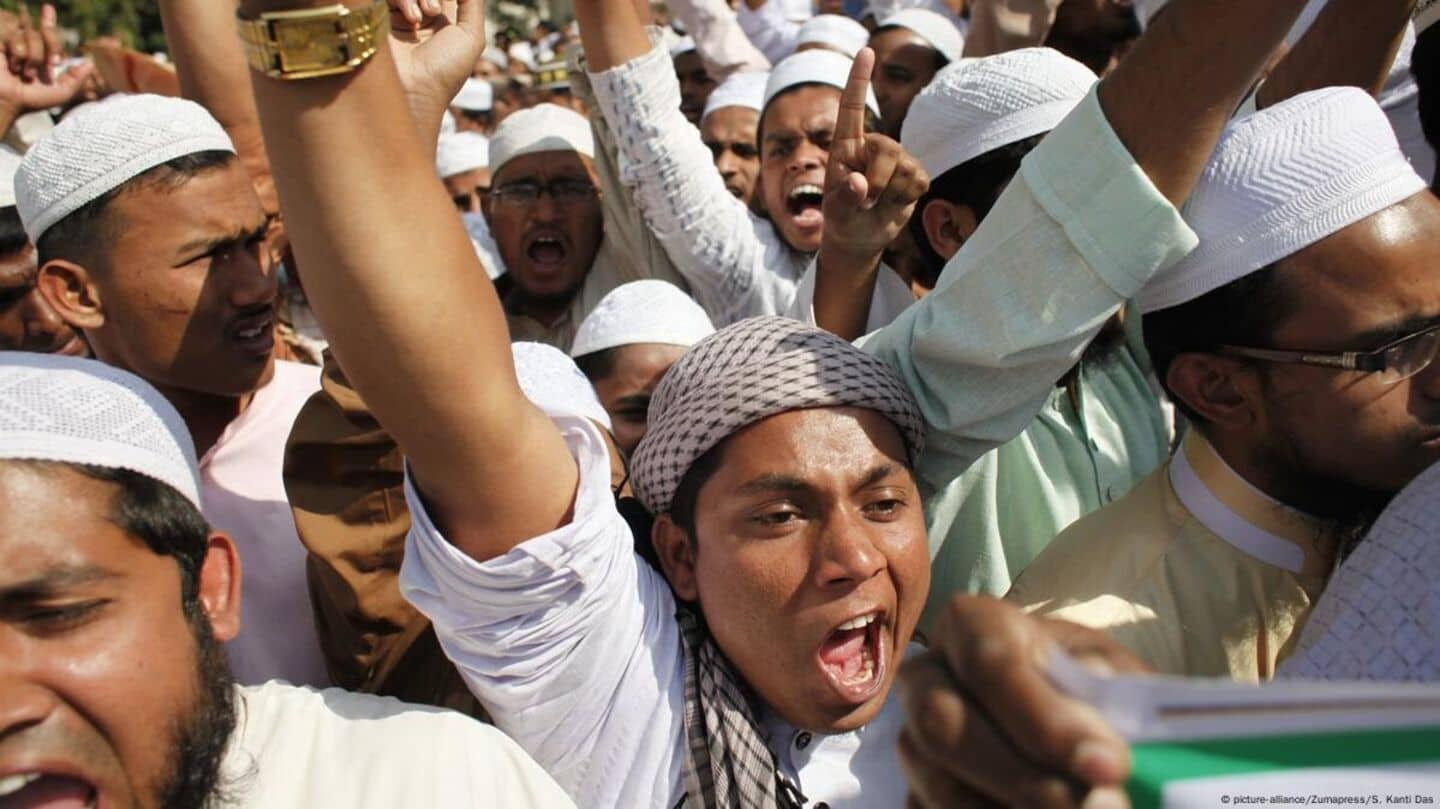
Bangladesh's Islamists pledge Sharia as they prepare for upcoming elections
What's the story
Bangladesh's powerful Islamist outfit, Hefazat-e-Islam, has promised to push to implement sharia law if it wins the next elections. Joint secretary of the coalition of Islamic schools, Muhammad Mamunul Haque, said they were confident of getting into parliament in the next elections. They will organize a mass rally in Dhaka on May 3 as part of their campaigning strategy.
Campaign strategy
Hefazat-e-Islam's strategy for the upcoming elections
Hefazat-e-Islam, a coalition of different parties and Muslim organizations, including Haque's Khilafat-e-Majlish party, is preparing for the polls. The group's broad network of seminaries with about 500,000 members puts them in a good position if the vote is "free and fair," according to Haque. Though there's no official date for elections yet, caretaker leader Muhammad Yunus has assured polls will be held by June 2026 at the latest.
Power shift
Islamist groups gain strength after Sheikh Hasina's departure
Bangladesh's last elections were held in January 2024, when Sheikh Hasina won a fourth stint as prime minister. Her absence has allowed Islamist groups to gain strength and impose their vision on the wider population. This shift has raised concerns among smaller groups like Muslim Sufi worshippers and the Hindu minority, who together make up less than a 10th of the population.
Cultural concerns
Islamists demand end to activities deemed 'anti-Islamic'
Islamist groups in Bangladesh have called for an end to "anti-Islamic" activities, including cultural music and theater festivals, women's football matches, and kite-flying celebrations. Golam Rabbani, chief of Khilafat-E-Majlish's youth wing, confirmed they targeted books promoting atheism. Such actions have raised concern among women and other minority groups in the country.
Political alliances
Hefazat-e-Islam's rally draws support from other political parties
Hefazat-e-Islam's rally on Saturday comes after two days of marches by other major parties trying to get their support, including the powerful Bangladesh Nationalist Party (BNP), expected to be the biggest political force, and the National Citizens Party (NCP). The largest single Islamist political party, Jamaat-e-Islami, is also part of the coalition. Notably, Haque has opposed the government women's commission and its recommendations for equal inheritance rights.